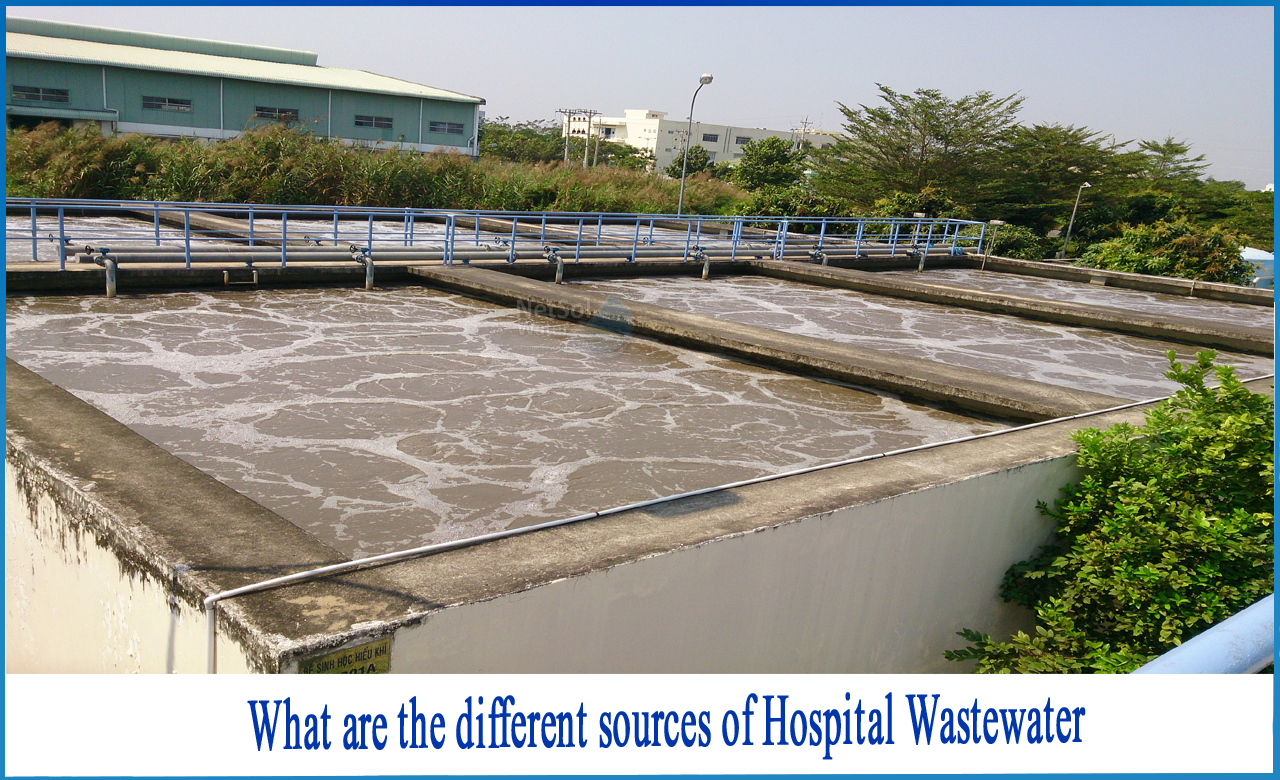What are the different sources of hospital wastewater?
The sewage released from hospitals (general hospitals, specialist hospitals, and other sorts of hospitals), both medical and non-medical, into the natural environment or urban pipes is referred to as hospital sewage. The water quality varies according to the nature, magnitude, and location of each hospital. Each department at the hospital has its own set of functions, facilities, and people. Hospital effluents are one example of anthropogenic pollutants. Indeed, hospital wastewaters are complex combinations of chemical and biological constituents that are released on a regular basis
In hospital wastewater, a wide spectrum of emerging contaminants (ECs) such as pharmaceutically active compounds, personal care products (PCPs), endocrine-disrupting compounds (EDCs), and hormones are produced (HWW). These toxins can penetrate natural habitats, including aquatic and terrestrial settings, posing a harm to human health and aquatic life.
What kind of sewage is discharged from the hospital?
• Hospital sewage is made up of physical, chemical, and biological waste from emergency and first-aid rooms.
• Furthermore, the ICU, biological laboratory, radiology, and canteen all discharge hospital wastewater into the sewer.
• It contains numerous toxic components that are detrimental.
Sources of Hospital Wastewater
The main sewage-producing departments and facilities are:
1: Diagnosis and treatment rooms,
2: Laboratories, wards, laundry rooms, X-ray image printing, animal rooms, isotope treatment and diagnosis, operating rooms, and other drainage;
3: Domestic sewage discharged by hospital administration and medical staff,
4: Canteens, single dormitories, and family dormitories.
The nature and volume of sewage produced by various departments vary, for example, heavy metal wastewater, greasy wastewater, printing wastewater, radioactive wastewater, and so on. Hospital sewage outflow is more sophisticated than normal home sewage discharge. Each hospital bed produces approximately 200-1000L of sewage each day.
Sources of chemical effluent in hospitals
It is the result of waste and medicine excretion from diagnostic laboratories and activities, which include active principles from medicinal products and their metabolites, chemicals, disinfecting agents, specific detergents, radioactive markers, iodinated contrast media, nutrients, and bacteria and their antimicrobial resistance genes.
Treatment of Hospital Wastewater
HWWs are of comparable quality to municipal wastewater, but they may also contain potentially dangerous components originating from diagnosis, laboratory, and research operations, such as toxic chemical compounds, heavy metals, disinfectants, and particular detergents. Wastewater treatment facilities (WWTPs) ensure that high-quality wastewater effluents from hospitals or industries are discharged into receiving water bodies.
Conclusion
Hospitals emit a significant amount of chemicals and microbiological organisms in their wastewater. Antibiotics, X-ray contrast agents, disinfectants, and pharmaceuticals are examples of problematic compounds found in hospital wastewater. Many of these chemical compounds are resistant to conventional wastewater treatment. They wind up in surface waterways, where they might disrupt the aquatic ecology and the food chain. Humans are particularly vulnerable to consuming water derived from surface water. Multi-resistant microbial strains are of particular significance. The latter are thought to be contributing to the spread of antibiotic resistance. As a result, adequate treatment of hospital wastewater is required.
What do we offer?
Netsol Water offers the most innovative and diverse techniques for hospital wastewater treatment. We are a renowned producer of water and wastewater treatment plants. Based on client feedback and job quality, we are the most demanding organization in the water industry. We have a reputation for being the top commercial RO plant manufacturer, industrial RO plant manufacturer, sewage treatment plant manufacturer, effluent treatment plant manufacturer, and much more. Aside from that, our USP is 24x7 customer assistance.
For further inquiry, or product-purchase-related questions, give us a call on +91-9650608473 or email at enquiry@netsolwater.com.



